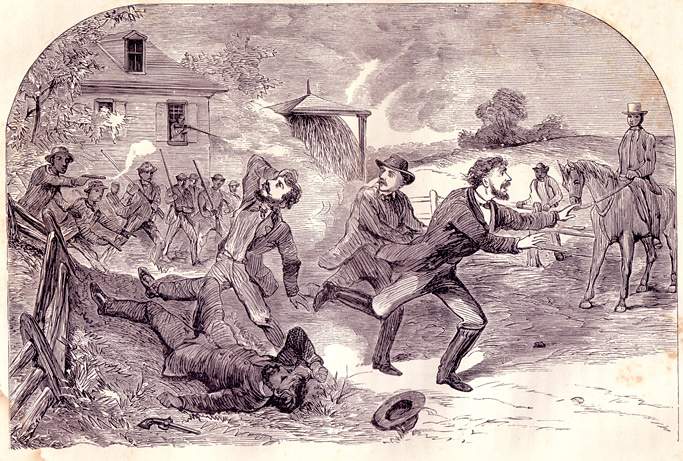Scanned by
John Osborne
Scan date
Notes
Cropped, sized, and prepared for use by John Osborne, Dickinson College, June 28, 2008.
Depicted ContentFugitive Slave Law
Depicted ContentUnderground Railroad
Depicted ContentUnderground Railroad
Image type
engraving
Original caption
The Christiana Tragedy
Source citation
William Still, The Underground Railroad (Philadelphia: Porter & Coats, 1872), 351.
Source note
Engraved illustration published in William Still's book depicting the resistance (or "riot") at Christiana, Pennsylvania on the morning of September 11, 1851. Maryland slaveholder Edward Gorsuch (center standing) died trying to recapture four young enslaved men who had run away from his plantation in Baltimore County. The runaways had sought refuge at the home of William and Eliza Parker (building depicted in upper left corner). Dozens of neighbors had rallied at the sound of Eliza's tin field horn, including Castner Hanway (on horseback) and they soon overwhelmed Gorsuch's party of seven slave-catchers (himself, his son Dickinson Gorsuch, who was wounded, nephew Joshua Gorsuch, Dr. Thomas G. Pearce, Nicholas T. Hutchings, Nathan Nelson, all from Maryland, and Deputy US Marshal Henry H. Kline from Philadelphia. Most of the resisters were black, but Hanway, a white man, was the one federal officials mistakenly identified as the ringleader. He was later tried and acquitted for treason. Everyone else involved either escaped or got released by federal authorities.

